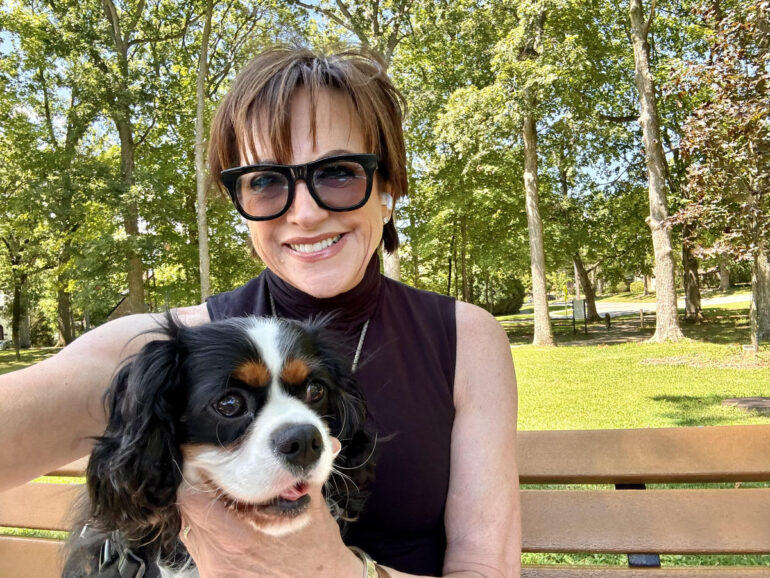I am approaching the 27th anniversary of my breast cancer diagnosis. And while I have remained cancer-free, it’s been quite a ride.
I am also approaching the 3rd anniversary of my preventative mastectomy and removal of my ovaries. Why the surgeries, might you ask, if I was cancer-free?
In 1997, following a routine mammogram, I underwent a lumpectomy, six months of chemotherapy, and six weeks of radiation. This was followed by five years of tamoxifen and five years of the drug Femara (letrozole).
In 2009, I underwent genetic testing and was thrilled to learn I did not have a BRCA mutation — a huge relief for me and my three daughters.
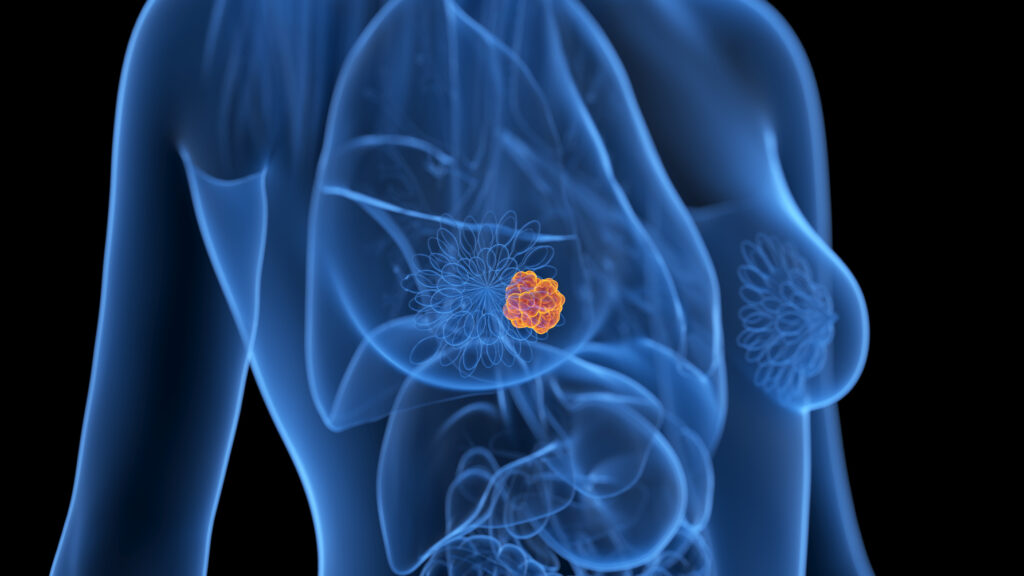
In April 2021, after a productive day of writing and cooking dinner, I answered my cellphone to a semi-hysterical daughter. The results of genetic testing done as part of her fertility work-up showed something unusual. Between sobs, my oldest daughter, Laura, was trying to explain that she has a gene mutation — one that I, a longtime health reporter and 24-year breast cancer survivor, had never heard of: PALB2. Between her crying and trying to catch her breath, I only heard this: “I have an elevated risk of breast, ovarian, and pancreatic cancer.” WHAT?!
What is PALB2? It is a genetic mutation that leaves one at higher risk of breast cancer, ovarian, and pancreatic cancer.
How did I not know about this? How did I, a 24-year breast cancer survivor and journalist who had spent the previous 10 years specializing in health reporting, know nothing about PALB2 that was discovered seven years earlier in 2014?
In the weeks that followed, I met with a genetic oncologist and had new genetic testing, as did my daughters. The doctor called a month later (it took that long for results). I had the PALB2 mutation. In later weeks, we learned that my daughter Annie also had the mutation. Thankfully, my youngest daughter, Allison, did not.
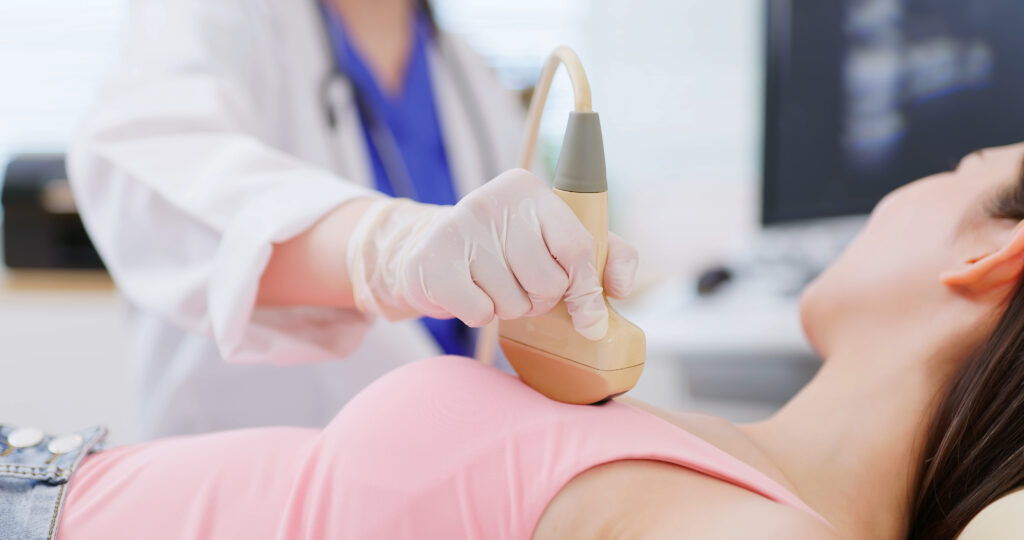
In the spirit of Nora Ephron, my idol regarding all things written, her mantra “Everything is copy” played in my head — I knew I had to write about this.
And yes, I wrote about it. I began my research in May, and by August 2021, my story was published in the New York Times.
PALB2 leaves those with the mutation at almost as great a risk as those with the BRCA mutation. And like the BRCA mutation, it also increases a patient’s risk of ovarian and pancreatic cancer.
Suddenly, the origin of my breast cancer came into focus. With no breast cancer in my family, I thought it was a fluke. But this piece of family information confirmed for me and my genetic counselor that it was PALB2: my maternal grandmother, Laura Oscherwitz, died of pancreatic cancer at the age of 77.
With so many cancer-free years behind me, you might ask why I decided to have a prophylactic mastectomy. My oncologist told me that my 10 years of tamoxifen would not protect me for a lifetime. He said the benefits probably ended after 15 years.
The other factor in my decision was this — those with a PALB2 mutation have a higher risk of estrogen-negative breast cancer. I asked my oncologist and my genetic counselor if a recurrence would be estrogen-positive since my breast cancer was estrogen-positive (a more treatable cancer). No, they said. A recurrence could be estrogen-negative.
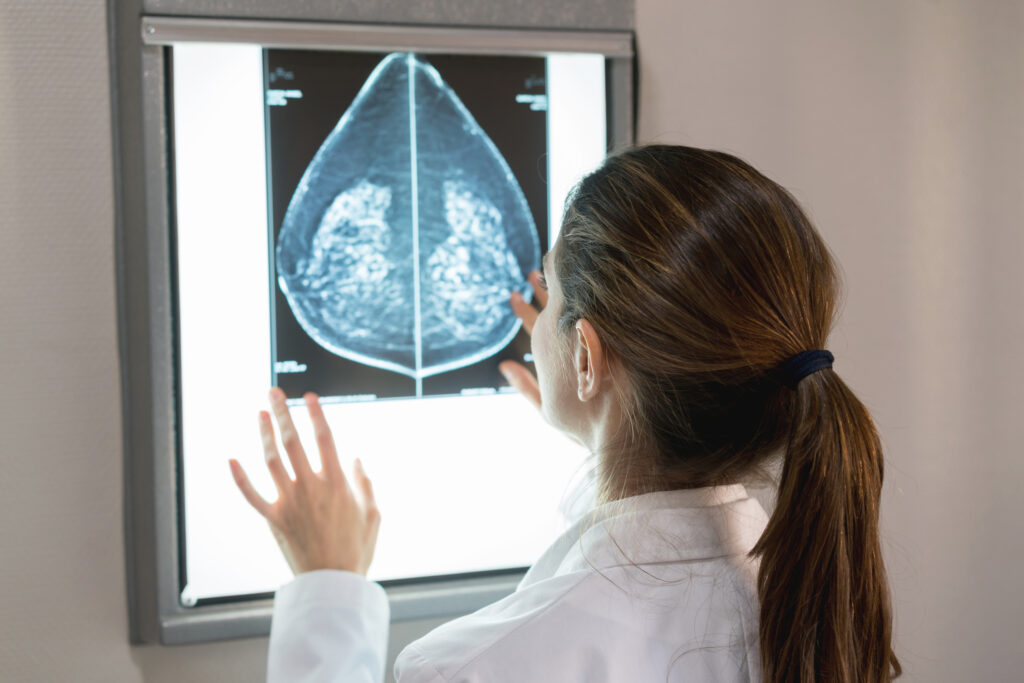
I was not going to wait for a recurrence. My breasts have served me well, and nursed three daughters. I wanted to eliminate the risk and be here for my two new grandchildren, Simon and Charlotte.
My new mantra became “Knowledge is Power.”
I also learned about the power of the press. The day my story was published, my oncologist told me his inbox was flooded with requests for genetic testing. Prominent doctors worldwide tweeted a link to my story. I received emails from survivors and families of breast cancer survivors around the world. Emails like this:
- Thank you Susan! If not for you and what you’ve been presenting to the media, I would not have known that the PALB2 gene mutation had been reclassified as being in the same category as the BRCA mutations. The oncology geneticists along with the oncology community are not contacting people that were previously diagnosed with this mutation — I was diagnosed with triple positive breast cancer with the PALB2 mutation in July of 2018. “I” had to contact them!! Anyway, thank you. We are all so grateful to you.
- Beautifully written. Thank you for being vulnerable, allowing others to see that vulnerability and draw strength from your journey. Our journey.
- Thank you for sharing Susan. So I was diagnosed with breast cancer 12-12-2015. Small lump caught early. My mom passed at 61 yrs old 25 years ago so that along with several relatives with all diff types of cancer on my Mom’s side spurred Brca testing and negative for both! I was so excited until I got a 2nd opinion and due to my family history ran a full panel test. So that’s when the PALB2 gene mutation showed up. My local doctors, including my oncologist, did not know about PALB2! I brought all the info to them and they were happy and thankful. My oncologist said he was changing his policy thx to me , and will now do the full panel on high risk women like me! … My 2nd opinion saved my life and put me on the correct treatment plan.
- Beautifully written, and having that personal perspective makes it all the more poignant. Thank you, Susan, for bringing more awareness to this mutation and sharing your experience. Your statement about the failure of the medical community to recommend updated genetic testing struck a chord with me. I found out I have the PALB2 mutation after being diagnosed with breast cancer 3 months ago. My Mom is a 2 time breast cancer survivor (1998 and 2006), but was never tested when she had her cancers and I doubt follow up testing was offered more recently. Like me, she had never heard of PALB2 until I tested positive, and I found out too late for the information to help me before the cancer developed. …Those test results changed my treatment plan and potentially saved my life, and everyone should be given that opportunity. Now that I know, my children will be tested when they are older and will have the knowledge to guide their future healthcare decisions. (Sorry, I got a little long-winded!)
I was featured on WGN News in Chicago and NBC for Mika Brzezinski’s “Know Your Value” in a segment: Why women (and their doctors) should watch for this breast cancer gene mutation.
On October 7, 2021, a crew from “The Today Show” came to my house with veteran reporter Anne Thompson. Anne and I hit it off immediately. We chatted about everything but especially the big thing we shared — breast cancer. She didn’t just prepare for the interview to be aired for breast cancer awareness month. She had lived it. My story was shared on the “3rd hour of Today”:
It was a long day of filming, and while finally relaxing with a glass of wine, my phone was exploding. The first message I opened was from a high school friend living in Texas who said, “You were just on Dallas NBC News, and you are in the promo for Nightly News with Lester Holt.”
And there was Lester Holt saying, “Tonight is breast cancer awareness month, and one woman’s mission to make people aware of a lesser known variant that can be deadly — Anne Thompson’s report about how she is inspiring America.”
Inspiring America. With three photos behind him. Of me.
Deeply honored for this recognition and so pleased to spread awareness of this underreported genetic mutation #palb2 #breastcancerawareness pic.twitter.com/ClH1lZt8kn
— Susan Berger (@Msjournalist) October 10, 2021
Appearing on Today and Nightly News was quite something. But nothing compared with this:
My breast surgeon, Dr. David Winchester (the same surgeon who did my lumpectomy 24 years ago), checked on me hours after my mastectomy. He took my hand and said, “I hope you know how many lives you saved.”
Knowledge Is Power: What to Know About Current Breast Screening Guidelines
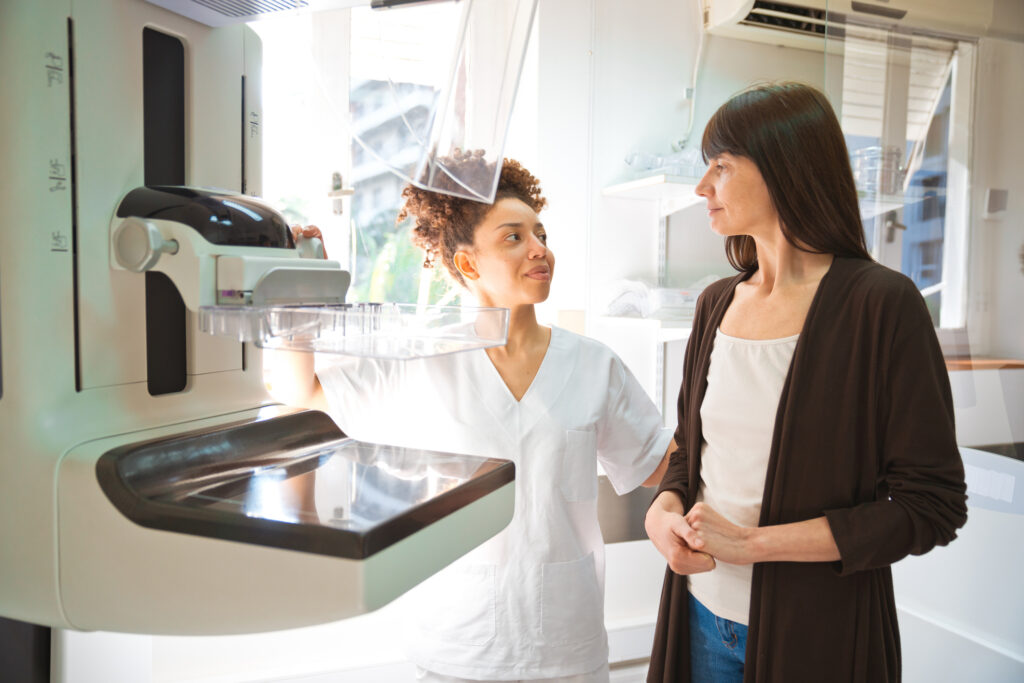
Guidelines recently changed for women at average risk to have mammograms beginning at age 40 and continue every other year until age 74. However, the American Cancer Society recommends mammograms yearly from age 45 to menopause.
Here is a rundown of the latest breast screening guidelines:
MRI and mammograms are used to screen women at high risk.
Clinical breast exams by a doctor and self-examination are needed to note changes and report them to your doctor.
About 5- 10% of breast cancers are thought to be hereditary. Women who are diagnosed with breast cancer and have a genetic mutation such as BRCA1, BRCA 2, or PALB2 often have a family history of cancer. According to breastcancer.org, you are substantially more likely to have a genetic mutation linked to breast cancer if:
- You have blood relatives (grandmothers, mother, sisters, aunts) on either your mother’s or father’s side of the family who had breast cancer diagnosed before age 50.
- There is both breast and ovarian cancer on the same side of the family or in a single individual.
- You have a relative(s) with triple-negative breast cancer. There are other cancers in your family in addition to breast, such as prostate, melanoma, pancreatic, stomach, uterine, thyroid, colon, and/or sarcoma.
- Women in your family have had cancer in both breasts.
- You are of Ashkenazi Jewish (Eastern European) heritage.
- You are Black and have been diagnosed with breast cancer at age 35 or younger.
- A man in your family has had breast cancer.
- There is a known abnormal breast cancer gene in your family.
- If one family member has a genetic mutation linked to breast cancer, it does not mean that all family members will have it.
The American Cancer Society recommends women at high risk for breast cancer get a breast MRI and a mammogram every year starting at age 30. This includes those with a known mutation, have a first-degree relative with a known gene mutation and have not had genetic testing themselves, had radiation to the chest before age 30, or have Li-Fraumeni syndrome, Cowden syndrome, or Bannayan-Riley-Ruvalcaba syndrome, or have a first-degree relative with one of those syndromes.
Genetic testing is often covered by insurance if cancer runs in your family. A consultation with a genetic oncologist is recommended to evaluate your family health history and discuss screening options.
How To Help
October is National Breast Cancer Awareness Month, and there are many organizations tirelessly working on funding research to treat and cure cancer, as well as support people affected by breast cancer. Here are a few places you can make a difference.
Susan G. Komen Breast Cancer Foundation
Founded in 1982, this foundation helps to “fuel research, community outreach, advocacy programs and more” through various programs, including Race for the Cure, benefit concerns, Play with a Purpose, and more.

American Cancer Society
The American Cancer Society has an entire division dedicated to breast cancer awareness, education, and research. From providing insight into the overwhelming information that comes with a diagnosis to educating the public about preventative screening information, the American Cancer Society’s mission to help end cancer is always looking for support.

National Breast Cancer Foundation, Inc.
For more than 30 years, the National Breast Cancer Foundation has worked to help educate women about breast cancer, its risks, and the importance of early detection.

Twist Out Cancer
Twist Out Cancer provides emotional and social support to people affected by cancer. Various art therapy programs and fundraisers unite patients, caregivers, and anyone else impacted by cancer. Donations help support Twist Out Cancer’s many outreach programs.

Karen Dove Cabral Foundation
The Karen Dove Cabral Foundation was created in honor of a remarkable young mother who bravely fought breast cancer until her untimely passing at age 36—the organization partners with healthcare facilities to identify patients with financial needs and fill in support gaps for things such as medical treatment, child care, housekeeping, transportation, and more.

More From Better
- ‘The Opposite of Certainty’: A Mother’s Memoir on Battling Breast Cancer As Her Son Fought a Brain Tumor
- 15 Foods and Diet Choices That Can Reduce Your Breast Cancer Risk
- Op-Ed: Breast Cancer and the Power of One
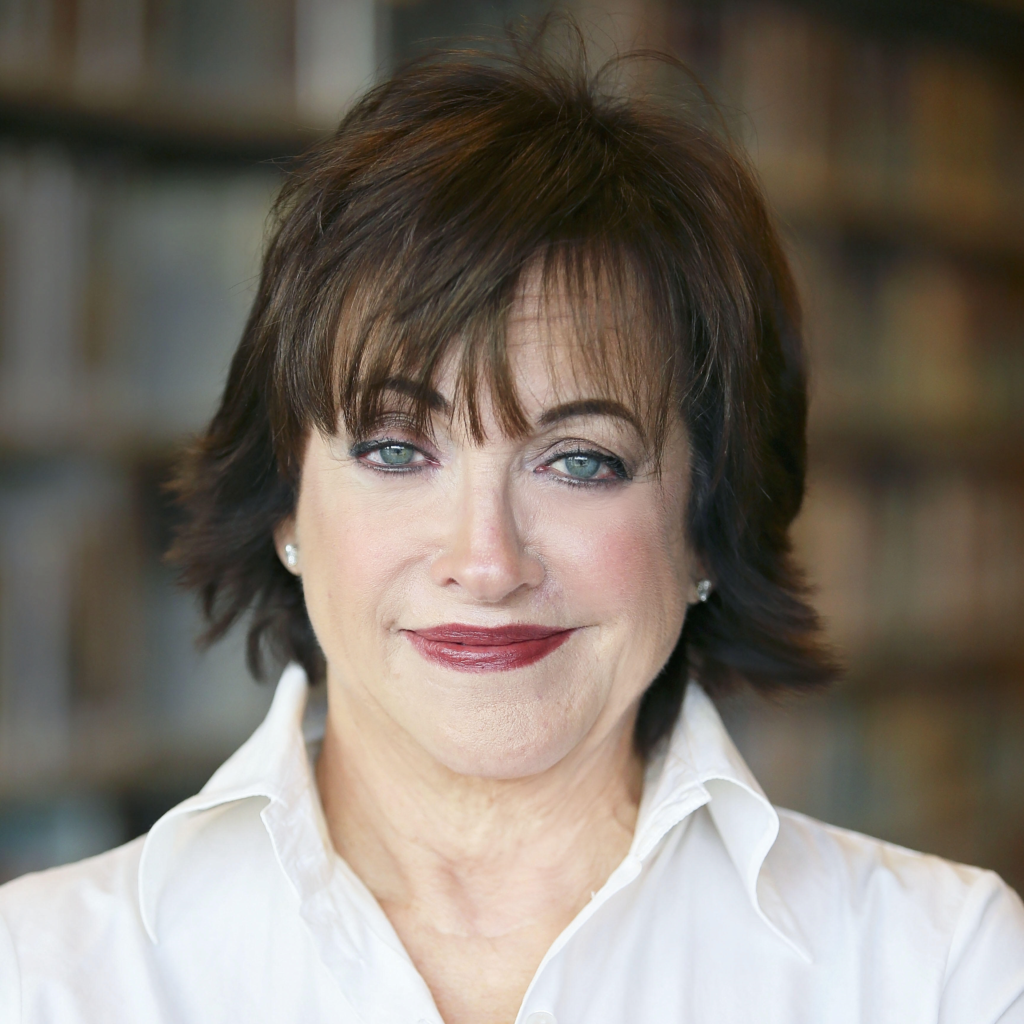
Susan Berger is a freelance journalist in Chicago and has written for the Washington Post, New York Times, and Chicago Tribune. She was a 2021 CDC Fellow through the Association of Health Journalists and a National Press Foundation Fellow in 2019 to study vaccines and dementia. She has also written for Health Magazine, National Post, Agence France-Presse, CBC, and Better Magazine. Ms. Berger has appeared on the Today Show, NBC Nightly News, BBC World News, CNN, WGN-TV, WTTW-TV, and CBC Radio. Her work can be viewed at www.bergerreport.com, and you can follow her on X @Msjournalist
